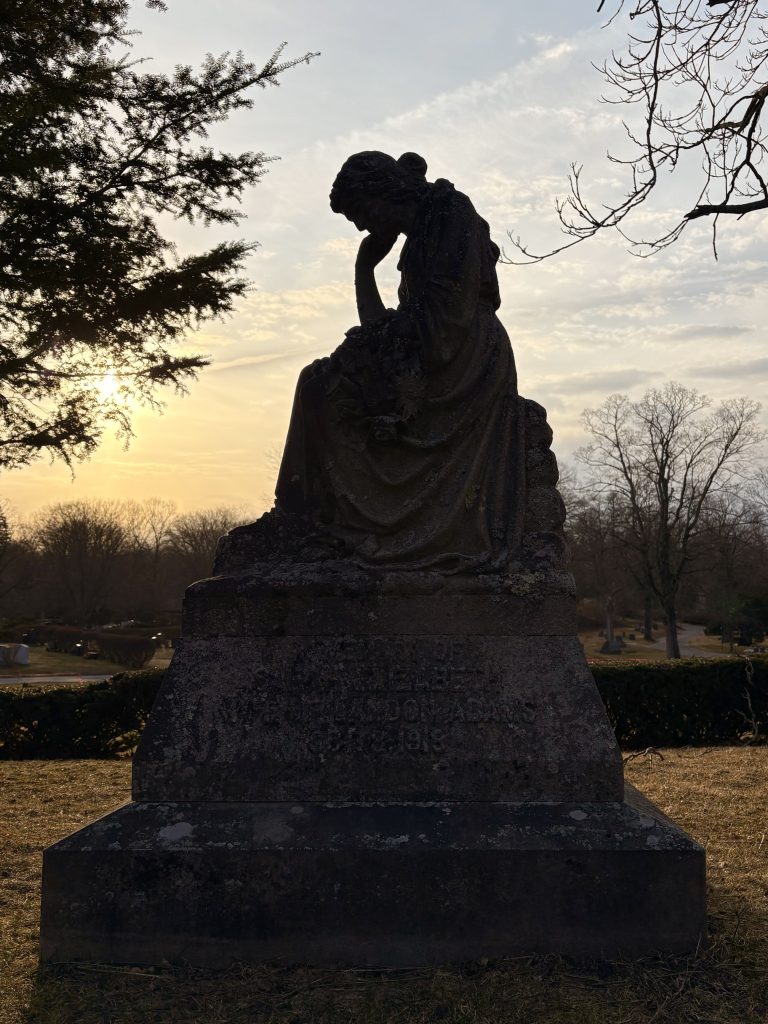
“To be alive right now is to have a moral injury.”
That phrase keeps coming up for me on coffeewalks lately. Looping in my brain. Or maybe it’s my heart… or my soul, if such a thing exists?
I think the phrase is mine, but the concept isn’t. Moral injury is the idea that we can be harmed – not physically, but in real and serious ways – by doing, failing to do, or witnessing acts that go against our deepest beliefs about what’s right.
It’s that “witnessing” element that haunts me now.
“Moral injury is a specific trauma that arises when people face situations that deeply violate their conscience or threaten their core values…. [it] tends to turn up when you have a vision of the world as fundamentally fair and good and something you’ve done or witnessed destroys that vision,” says a 2022 article in Scientific American.
Yeah. Who here is feeling agonized by watching our leaders trample what we believed were our nation’s core ethics? Show of hands, please. Mmkay, that’s about what I figured. Hands down.
There are a couple of tools for assessing this in a more scientifically validated way than my little poll. Of course I’m not here to diagnose any of us with my nonexistent medical credentials, and I don’t mean to pathologize us as victims. Just saying, you might wanna check out the Moral Injury and Distress Scale (MIDS) and the Moral Injury Outcomes Scale (MIOS).
MIOS asks us to rate statements including “I have lost faith in humanity,” “I lost trust in others,” and “People don’t deserve second chances.”
MIDS resonates with me even more, with prompts like these: “Because of what I did, failed to do, or witnessed that went against my morals and values…
- I feel helpless.
- My life feels like it has less purpose.
- I am worried that bad things will happen to me or my loved ones.
- I feel betrayed by leaders or institutions.
- I think about how I should have been able to do more.”
That last one, though. Wow, right?
A friend recently said, “The news these days isn’t just breaking. It’s heart-breaking.” As we watch in constant horror, feeling helpless and scared, we naturally wonder what we woulda-coulda-shoulda done, and what we can possibly do now. Those are very reasonable questions, to some extent; but they’re also added pain we don’t need to carry, in the sense that individual action will always be an insufficient remedy for institutional injustice. That’s why we need collective action, communities, movements.
Still, that sense of personal culpability is part of the problem with treating moral injury: “For people with moral injury who’ve experienced wrenching events that upend their entire value system, ethical distress is genuine, not the product of distorted thinking,” says that same article. “If people with moral injury simply try to retrain their thoughts, they may be left unsatisfied and unhealed.”
One of the recommended strategies for healing a moral injury is to offer amends in some personally meaningful way. It strikes me that I already tried to do that, without recognizing it as such: I wrote a few weeks ago about the wide range of organizations and movements that I’ll be supporting with monthly $10 gifts so that every time I see something terrible in the news, I’ll know I’m trying to make it better in some small way.
So, did that action help heal me?
Meh. I’m glad to see the charges come through on my credit card every month. But mostly, nope. I’ve still got a bad case of what the article calls “ethical vertigo.”
Which makes sense, because the injury is ongoing. How can we heal when our so-called leaders are still gleefully twisting the knife deeper into the wound?
But. For generations, there have been people who fought to make our country more true to its supposed core values. They knew – and they know today – that we can’t simply wait for the pain to end before we tend our wounds.
This is not a new struggle. It is and will be a long one. Part of my own ongoing healing is finding words for the hurt. And offering them to you, for whatever solace they may provide. I wanted to name this as moral injury so we know: we’re not alone in this pain. It’s real and it matters.
On that note – if you’d like to make sure we stay in touch, you can sign up on substack to get a notification whenever I publish one of these posts: onwardswithandie.substack.com.
Onwards, my friends. Always, together. ❤️
P.S. – I want to give respect and gratitude to James Baldwin, whose powerful and truthful phrasing my brain is probably borrowing: “To be a Negro in this country and to be relatively conscious is to be in a rage almost all the time.” And to Malcolm X for addressing why we can’t heal when we’re still being hurt: “I will never say that progress is being made. If you stick a knife in my back nine inches and pull it out six inches, there’s no progress.” 🖤